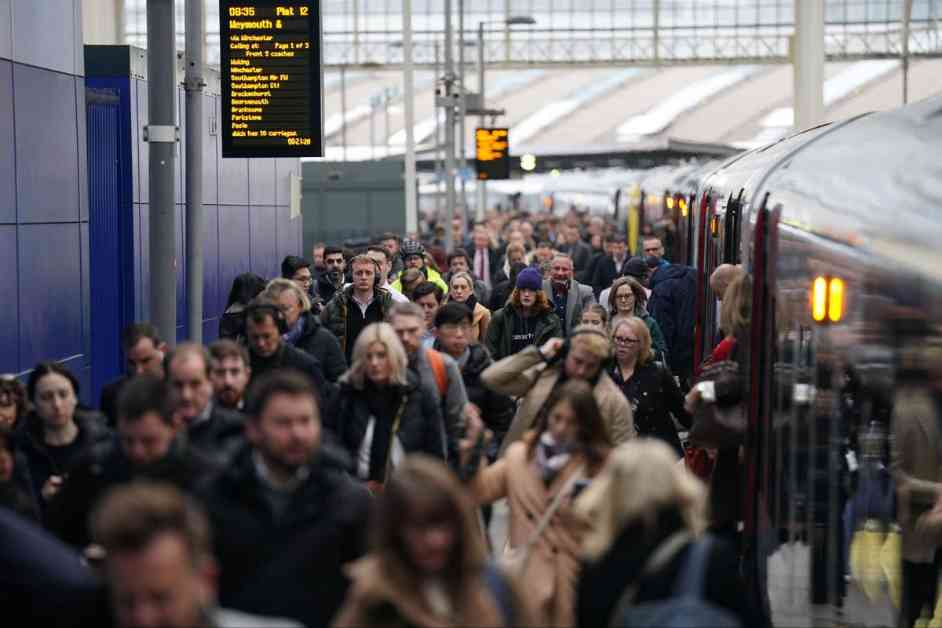Strong Support for Rail Nationalisation in London
A recent YouGov survey has revealed that more than two-thirds of Londoners support the renationalisation of the railways. This comes as the new Labour Government plans to gradually bring an end to private rail franchises on each line, eventually placing all train operators under the control of a new state body. The survey indicated a strong backing for this policy, which aims to undo decades of fragmentation that occurred after the Conservatives privatised the network in the 1990s.
In addition to supporting rail nationalisation, a majority of 63% of Londoners also backed the idea of connecting major cities via high-speed rail. This demonstrates a clear desire for improved transportation infrastructure within the city and beyond. However, while there is significant support for these initiatives, the survey also highlighted some concerns surrounding funding and potential implications for taxpayers.
Concerns Over Funding and Ticket Prices
One of the key findings of the survey was that while Londoners support rail nationalisation, they are opposed to any increase in funding or ticket prices to cover the costs. A majority of respondents expressed dissatisfaction with current ticket prices, with 77% stating that they were bad. This sentiment was even more pronounced in London, where 84% of respondents viewed ticket prices negatively.
When asked about their willingness to support nationalisation, respondents made it clear that they would only do so if ticket prices remained steady. Six in ten voters indicated that they would support nationalisation under these conditions. However, if taxes were to increase as a result, only 19% would support nationalisation. Similarly, if fares were to go up, just 6% of respondents backed the idea.
It is evident that support for rail nationalisation is contingent upon ensuring that the financial burden does not fall on the shoulders of taxpayers or commuters. This presents a challenge for policymakers as they navigate the complexities of funding public transportation initiatives while keeping costs affordable for the public.
Labour’s Commitment to Rail Renationalisation
Addressing the Labour conference in Liverpool, Transport Secretary Louise Haigh reaffirmed the party’s commitment to ending the “age of privatised chaos” on the railways. She outlined plans to bring the railways under public ownership by the end of the Parliament, with Great British Railways set to oversee operations in the service of the British people.
Haigh’s announcement was met with mixed reactions, as critics accused Labour of bowing to pressure from unions following a pay offer accepted by train drivers represented by Aslef. The pay offer, worth 15% over three years, was intended to resolve a two-year dispute at 16 rail companies. Despite this criticism, Haigh assured commuters that they could expect to see improvements in train services into the capital as rail renationalisation takes effect.
Overall, the survey results reflect a strong desire among Londoners for a more integrated and efficient railway system. While there is widespread support for rail nationalisation, concerns over funding and ticket prices remain paramount. As policymakers work towards implementing these changes, they must carefully consider the implications for taxpayers and commuters to ensure a smooth transition to a publicly owned railway system.












